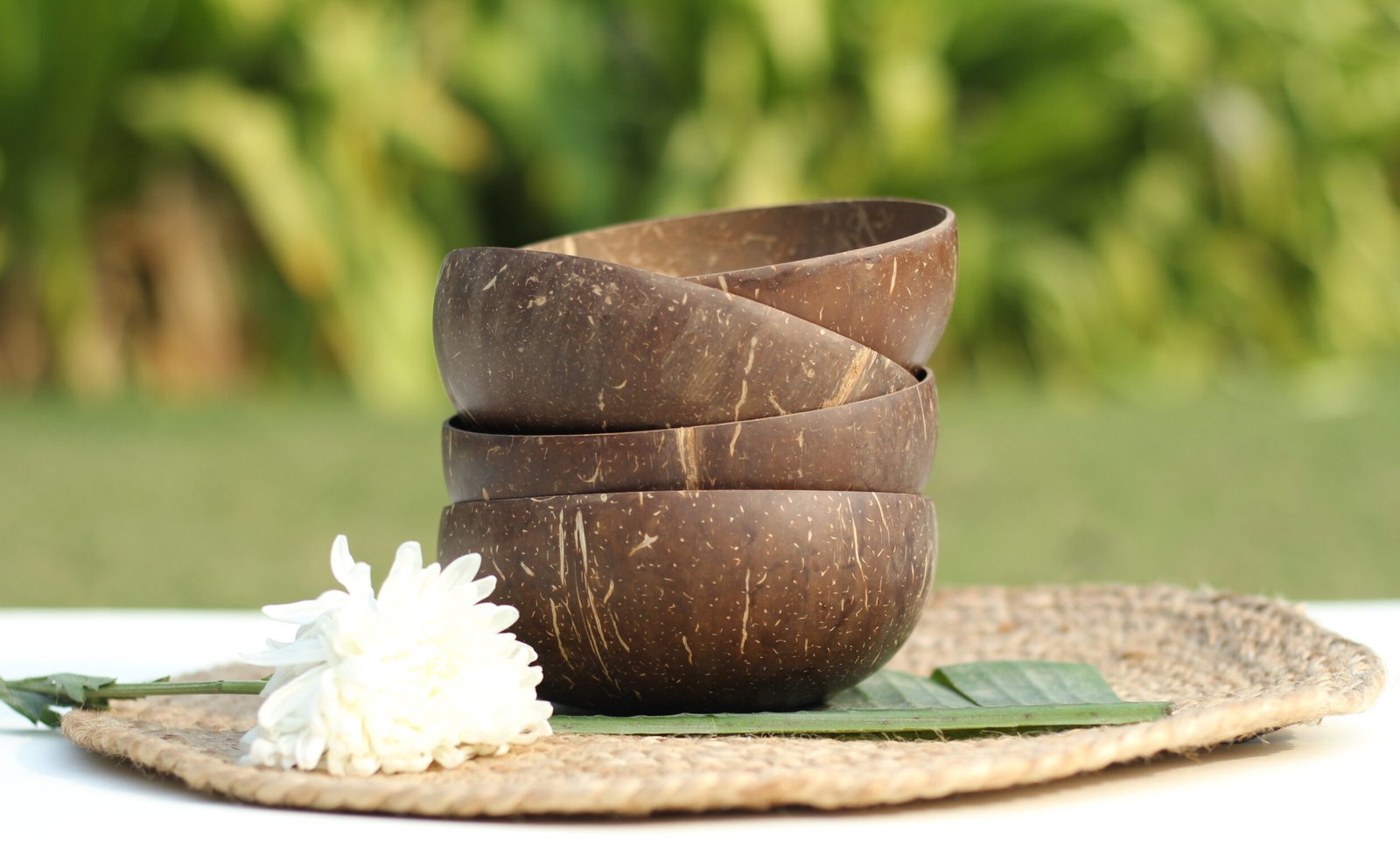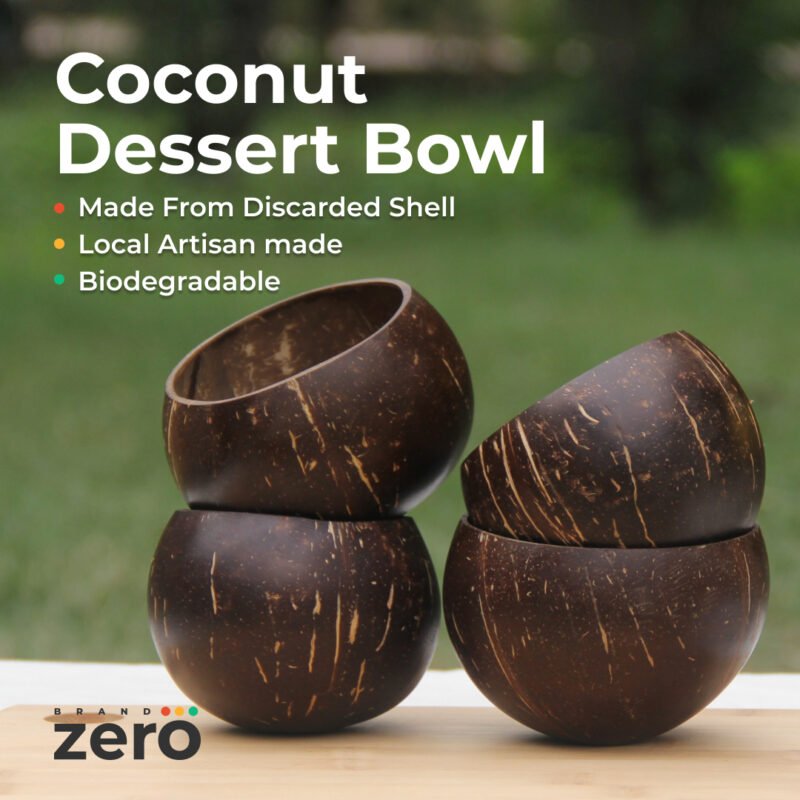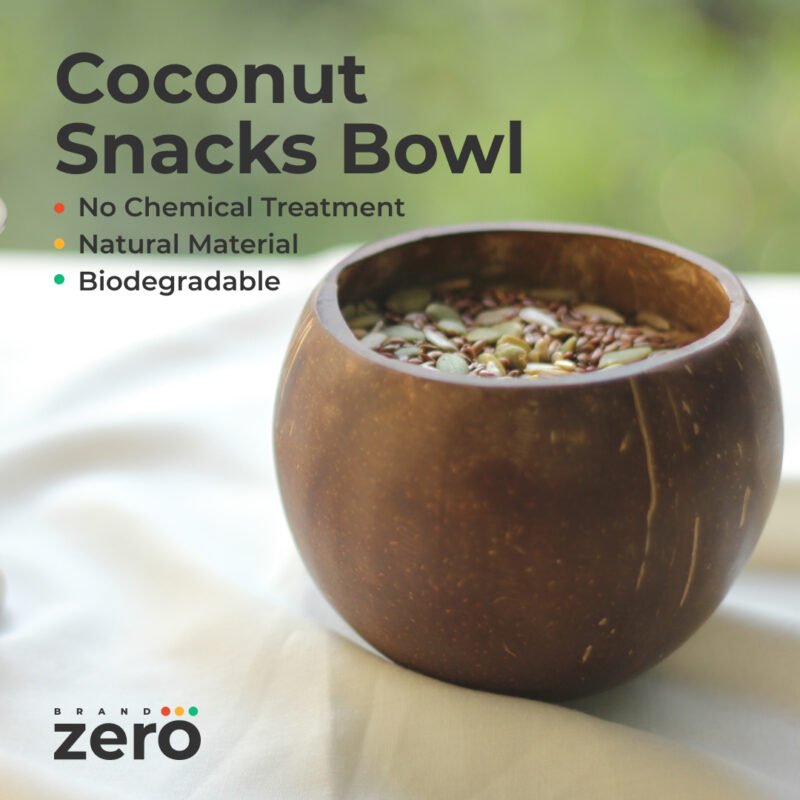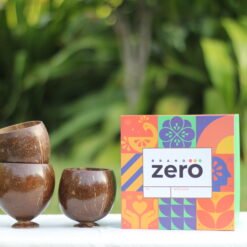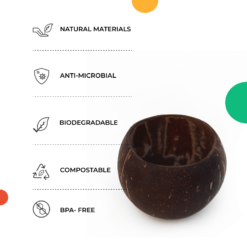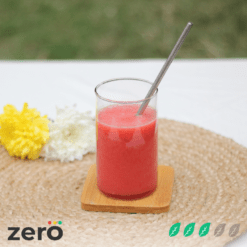Subtotal: ₹360.00
Environment, People, Sustainability
Coconut Bowls: Eco Friendly & Zero Waste
Coconut bowls are made from the discarded shells of coconuts that would normally be left to decompose. Making them into bowls is a fun way to not only reduce waste but also reuse them.
Coconut is an extremely versatile fruit that is always confused between being a fruit, a nut, and a seed. Despite having the term ‘nut’ in its nomenclature, a coconut is a drupe; which is a fruit with layers.
It has varied uses all over the world and in some countries like India, it is celebrated as a symbol of prosperity, an auspicious ceremonious object from nature and an essential cooking ingredient.
A state in India called ‘Kerala’ has derived its name from this fruit! Kera means coconut tree and Alam means land thus Kerala is the land of coconut trees. Coconut trees are also called, ‘the tree of life’ since they are one of the most useful trees in the world. In addition, social media these days has made coconuts a vision of some dreamy relaxation on a far-off tropical island.
Now let’s talk about some features and environmental effects of the currently trending coconut bowls which are made out of coconut shells!
Benefits of using coconut bowls:
1. Authentic Feels and Vacay Vibes:
They provide an earthy and aesthetic look. Instagram-able meals: You must admit, coconut bowls can make any dish more Insta-worthy! Since they’re crafted from all-natural coconut shells, they give you tropical paradise vibes on a distant island.
2. Sustainable and Eco-friendly:
The bowls are made completely from coconut shells, therefore they are hundred percent natural, biodegradable, compostable, and produce no waste. In addition you can plant saplings in them and turn them into a crafty pot.
3. Ease of care:
Wash them with your hands and a little soap. After washing, wipe them clean and let them dry completely. Use coconut oil to sparkle them every 15-20 uses. Coconut bowls are temperature-friendly.
4. One of a kind – Coconut trees:
Each year, 50 billion coconuts around the globe fall from the trees and not a single part of this unique tree goes to waste, everything has its purpose and use. Coconut Shells are the most sustainable and eco-friendly crockeries of all time. These coconut shells are meticulously handcrafted to turn them into attractive coconut bowls.
5. Sturdiness of Coconut Bowls:
Coconut shells are well-known for their durable properties in contrast to clay, porcelain, and glass. Many construction companies utilise coconut shells as aggregates or filler materials for building structures. You don’t have to worry about the possibility that your coconut bowl might break.
6. Mindful Eating Habits:
Almost every part of coconut serves its purpose beautifully and contributes to good health. Drinking coconut water has amazing health benefits. Similarly, using products made out of coconuts also affects our day-to-day lifestyle for instance coconut bowls can affect the food choices that you make. In other words all you would want to eat in them are natural healthy products, smoothies, salads, oats, and fruits, etc.
7. Ethical Modes and Artisans Support: What does ethical mode mean?
Handmade products made out of coconuts, like bowls support companies with ethical codes and practices, farmers and artisans because they are usually manufactured and sold by companies that have strong ethics. For instance 95% of all the coconuts are grown each year which supports the livelihood of almost 10 million farmers.
8. Uniqueness of Coconut Bowls:
Every bowl is unique and features all of the cracks, marks, and dents of a real coconut and as a bonus you get a rustic, natural, and wild feel while using the product which makes it uniquely yours!
Drawbacks of coconut bowls:
1. Coconut Bowls are not heat resistant:
Although they are temperature friendly; coconut bowls can’t be used in extreme hot or cold conditions.
2. Cannot be refrigerated or put in the microwave:
Coconut bowls cannot be used in microwaves, ovens, or refrigerators because they are delicate and can be damaged by exposure to extreme temperatures and it is advisable to store your bowls in a cool, dry place. These are natural, earthy products and therefore it’s essential to treat them with care.
3. Loses its shine:
Rub coconut oil or any other oil over the bowl every 5-8 uses to restore the shine and smooth surface. As a result coconut bowls will be rehydrated and restored to their natural strength.
4. Requires proper care:
The coconut bowls are quite durable, for best results and long-lasting lives, they need to be taken care of, proper cleaning and storing are very important. Avoid soaking in water for extended periods before washing them, air-drying and exposing them to moisture for a longer period, dry them immediately after washing.
What is the rating of Coconut on our Sustainability Scale?
We have considered specific factors responsible for making a material a sustainable one and coconut stands at 4.5 out of 5!
| Factors | Coconut |
| Natural / replenish-able | 1 |
| Biodegradable | 1 |
| Recyclable / Reusable | 1 |
| Lifespan | 0.5 |
| Emissions (Manufacturing) | 1 |
| RATING Out of 5 | 4.5 |
Let’s go bananas over some coconut bowls! 😛
INTERESTING FACT:
The sailors on the ships of Vasco de Gama gave the coconut its name, by calling it coco because it reminded them of an ugly, grim face with hair. It was later added with the suffix, ‘nut’ when it arrived in England.
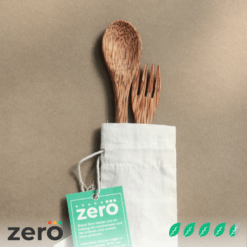 Travel Kit for Daily Use – Coconut
Travel Kit for Daily Use – Coconut 